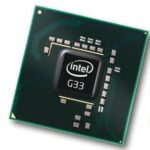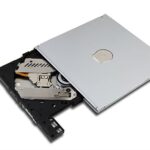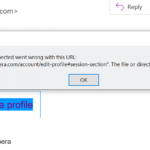Data security is highly critical for all businesses around the world. Every big and small business worldwide is investing in firewalls, antivirus, and antimalware software to protect their data and their client’s data. However, one threat is commonly forgotten: power outages, short circuits, and electrical surges.
No, it is not safe to run a PC without a UPS. Power outages and electrical surges are very real threats that can occur without warning. UPS acts as a stabilizer before the electricity reaches the PSU of your PC. Without a UPS, the electrical supply to the PC does not remain constant. As a result, it can cause severe damages such as loss of data and more.
Also, the sudden electricity cuts can result in the loss of your work data while you are working on any software. Let us dive into why it is not safe to use a PC without UPS.
Although, you will see a lot of people using their computers without any UPS because the power supply is there to stabilize the incoming current. However, UPS can be very helpful when you do not want your computer to shut down immediately once there is an electrical cut.

Top Reasons Why It Is Not Safe To Run A Pc Without UPS
1. A power surge might cause your power supply unit to burn
The power supply unit (PSU) is one of the most vital components of your PC. PSU is the hub that powers all the internal components, such as the motherboard, graphic cards, the HDD, processors, etc., that makes your device run smoothly.
Highly powerful and expensive rigs are equipped with PSUs that come with fail switches in case of a power surge. Unfortunately, this is not the case with standard rigs. Power surges can cause an unwanted increase in power supply, causing the PSU and ultimately the inner components to burn out. What’s worse, the warranty does not apply to this unfortunate situation.
Although, PSUs are designed to damage themselves before they cause any damage to the motherboard further down the line. But, it is still good to have a UPS to keep everything safe from unwanted damages.
2. It can cause a hard drive failure
All of your personal and sensitive data gets stored here. Unfortunately, just like other components, the HDD is also susceptible to failure. Due to technological advances, manufacturers have improved the resilience of HDDs. Nonetheless, they still tend to fail and become corrupt when a sudden power outage or power surge occurs.
The HDD is also the first component to suffer in case of an electrical issue. Once it fails or becomes corrupt, there is usually no way to retrieve the data.
A UPS effectively safeguards fragile components such as motherboards, power supplies, and hard drives by suppressing surges and adjusting the voltage. Depending on the industry you are in, we suggest buying the highest-grade UPS machines so that you get enough time to power off your PC safely.
3. You will immediately lose all unsaved work
Imagine working hard on something important that you have been doing for hours; only to lose all the hard work because of a power outage. Frustrating, isn’t it? This situation may be even more disastrous for the finance and health industries. None of the data security practices can save you if you are not prepared with a UPS.
A UPS may be a valuable element in your data protection strategy, preventing data loss and unsaved work. Since UPS stabilizes the flow of electricity, it gives you enough time to shut down your devices safely and not lose any critical data.
4. Loss of valuable data
Data security is critical in many industries such as IT, Finance, and Healthcare. Many industries today function smoothly with the help of IT practices. However, despite various security measures, these industries have one major threat to overcome: power fluctuations, surges, and outages.
Unforeseen situations such as power outages can cause a loss of valuable data. There are various solutions to combat this; installing a UPS for every system is just one of these solutions. This device is instrumental in minimizing the risk of data loss.
Even if you talk about your personal computer, we often work on important tasks. So, while working on an important assignment or a piece of work, sudden data loss is sometimes pretty costly. A UPS can be life-saving in this case.
5. It might be a crippling blow to your finances
Finally, think about the risks of not employing a UPS when you have a large multi-computer system that is critical to your organization. When we talk about companies, we are not talking about a single motherboard, a single HDD, or a single PSU.
Instead, we are talking about a lot of devices connected to a network. A single power surge may cause chaos, leaving you with little choice except to buy new parts and fix all of your systems. Without a UPS, all of the strongest data access security policies in the world will be useless if the power goes out unexpectedly.
Conclusion
Data loss protection is maybe the most important benefit of all the advantages UPS systems provide. Everything else is typically controllable, but if you lose sensitive data – data that is critical to your organization — you have very few alternatives. So today, aid your business by investing in a UPS for your PCs.

I am Anshul Rana, an experienced author specializing in PC gear reviews and Windows 10 software tutorials. With a strong passion for technology and an in-depth understanding of the PC industry, I provide insightful and detailed analyses of computer peripherals, gaming gear, and software solutions. My writing style is concise yet informative, making complex topics accessible to both beginners and advanced users. Through my reviews and tutorials, I aim to offer valuable guidance, helping readers make informed decisions to enhance their PC experience and explore the vast possibilities of Windows 10 software.









